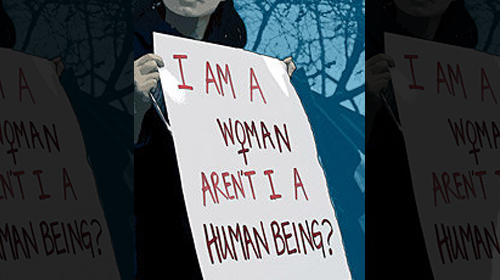
Recently, a mother in South Carolina reached out to the ACLU for help. She was pregnant, and although she had had two prior cesarean surgeries, she wished to attempt a “trial of labor,” that is, to give birth naturally, rather than having a scheduled cesarean surgery. The mother’s wish made sense in light of her medical history, and according to professional standards set by obstetricians.
Nevertheless, the mother’s doctors – publically employed physicians working in a public hospital –forced her to schedule a C-section, called her “stupid” for wanting to do otherwise, and threathened to withhold medical care if she refused the surgery and went into labor naturally. In short, even after having made her wishes known to her physicians, the mother was being coerced into undergoing a serious and invasive medical procedure against her will.
We and our partner organizations wrote to the doctors explaining that a pregnant woman, like any other person, has the right to receive only medical treatment to which she gives informed consent. This means that a pregnant woman, like all other persons, has the right to refuse any and all medical interventions that she does not want, even if her doctor disagrees. In a case called In Re A.C., brought by the ACLU 25 years ago on behalf of a woman forced by court order to undergo a life-threatening C-section, the judge explained: “[I]n virtually all cases the question of what is to be done is decided by the patient – the pregnant woman – on behalf of herself and her fetus.”
Almost immediately after receiving our letter, the doctors in South Carolina changed their tune. They cancelled the scheduled cesarean surgery and respected the mother’s wish to go into labor spontaneously. The mother avoided the scheduled cesarean, labored naturally and ultimately gave birth to a healthy baby girl.
What is troubling about this story is that it took the intervention of the ACLU to secure for the mother the basic and fundamental right of every human being to decide what medical interventions she or he does or does not want. Unfortunately, pregnant women are often subjected to pressure or outright coercion to accept unwanted medical interventions.
In a national survey, a quarter of women who underwent cesarean surgery said they had felt pressured to do so. Many more women were simply not given full information about the benefits and risks of cesarean surgery, in other words, their consent, even when given, was not informed. The story is similar with other common labor interventions: seventeen percent of women whose labor had been induced by the administration of drugs said they had felt pressure, and the great majority of mothers who had received an episiotomy (an incision between the vagina and anus) reported that they had had no choice in the matter at all.
Even worse, as we at the ACLU know only too well, what starts as coercion can turn into court-ordered medical intervention. In each case, the woman’s fundamental right to bodily integrity, as expressed through autonomous decision-making in medical matters, is infringed. Considering that about 4 million births occur in the U.S. each year, that amounts to civil liberties infringement on a massive scale.
Every person has a fundamental right to refuse unwanted medical treatments and interventions, which stem from principles of autonomy and self-determination, privacy, liberty and freedom of religion that are so deeply engrained in our society and system of laws. Yet these rights are under attack, with pregnant women as some of the principal targets. It will take courageous people like the South Carolina mother we represented, as well as concerted work by civil libertarians, to ensure a woman does not lose this basic human right simply because she chooses to become or remain pregnant.
Learn more about women's rights: Sign up for breaking news alerts, follow us on Twitter, and like us on Facebook.


